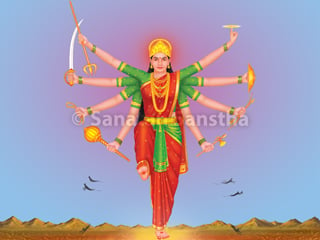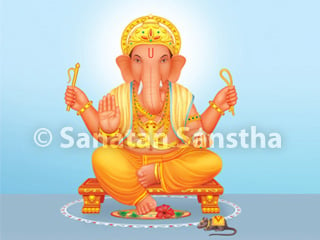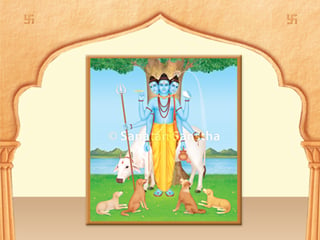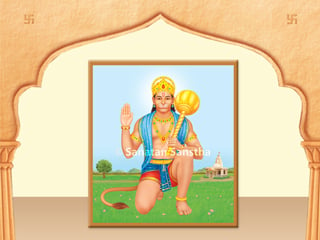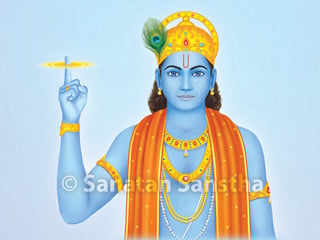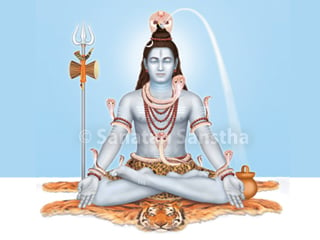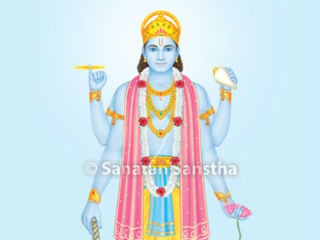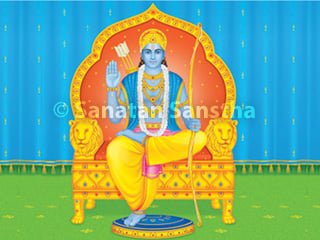When we understand the spiritual science about a Deity, it strengthens our faith in the Deity. Faith leads to enriching the worship with bhav, and worship with enriched bhav is more beneficial. With this perspective, emphasis has been laid upon providing information on Hindu Gods in these articles, which is not normally available elsewhere and is useful from the spiritual perspective.
Supreme God is the one who observes, that is the one who perceives, the one who is omniscient and one who bestows Serenity (Shanti), satisfaction. He is the one who is supreme in omniscience and in bestowing Serenity.
Having spiritual information on a Deity helps in increasing faith towards the Deity. Due to faith worship is performed with bhav (Spiritual emotion) which is more fruitful. Those who worship Shakti and those who perform sectarian spiritual practice will certainly benefit from this spiritual information.
Spiritual information about implied meaning of the principal Names of Sri Gaṇapati; various functions and specialities of Gaṇapati such as the interpreter of language of light spoken by Deities into language of sound of the humans, the augmenter of vital energy in our body etc is given here.
Datta is one who has been bestowed with the spiritual experience of the nirguṇ (Nonmaterialised), meaning, the one who has been given the experience that the ‘Self’ is Brahman (God in His aspect as the Creator of the universe) or mukta (Liberated) self or the soul.
Hanuman’s devotion unto Lord Rama is cited as an example of dâsyabhakti (one of the nine types of devotion, an attitude of servitude). He was eveready to sacrifice His life for His master. Hanuman is a wonderful blend of a servant and a soldier !
Shri Krishṇa was a Purṇavtar (Absolute Incarnation). Actually, a Purṇavtar is not an Incarnation but manifest God Himself; hence, He is characterised by all the features of God. Protection of society was His goal.
Shri Saraswatidevi is the Deity of knowledge and art. Her worship makes the devotee’s intellect sattvik (Pure), which in turn helps the devotee master different types of knowledge and arts.
The Supreme Shiva is the conductor of the five actions in the universe - Srushṭi (Creation), Sthiti (Sustenance), Samhār (Annihilation), Anugraha (Grace) and Vilaya (Dissolution). This universe is a reflection of the Supreme Shiva.
One who is compassionate or one who bestows compassion. The one who flows with compassion for His devotees and the one who is overwhelmed with love for His…
When Ram returned victorious to Ayodhya with Sita after slaying Ravan and conquering Lanka, revealing that He was indeed God incarnate, He was called Shriram by the residents of Ayodhya. In the Valmiki Ramayaṇ, Ram is referred to as ‘Narapungav’ (The Supreme Man) and not as God.

